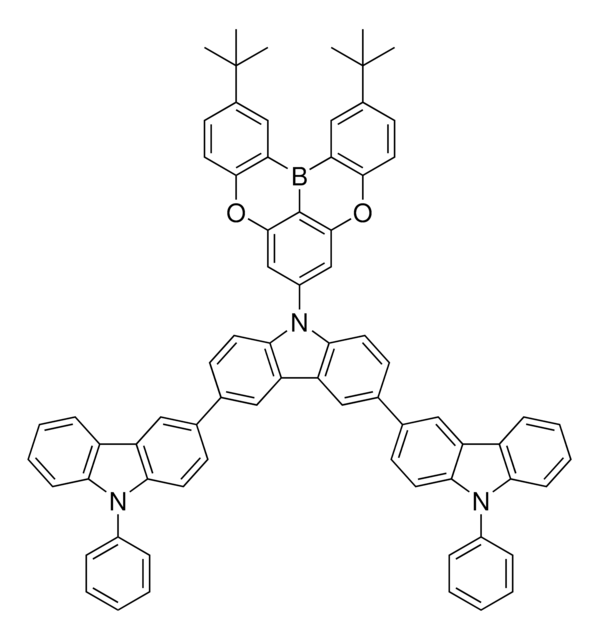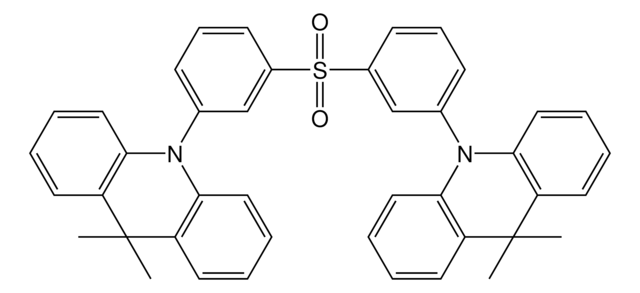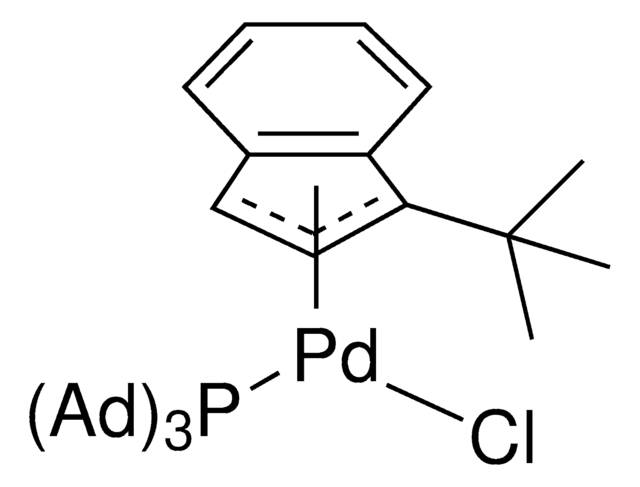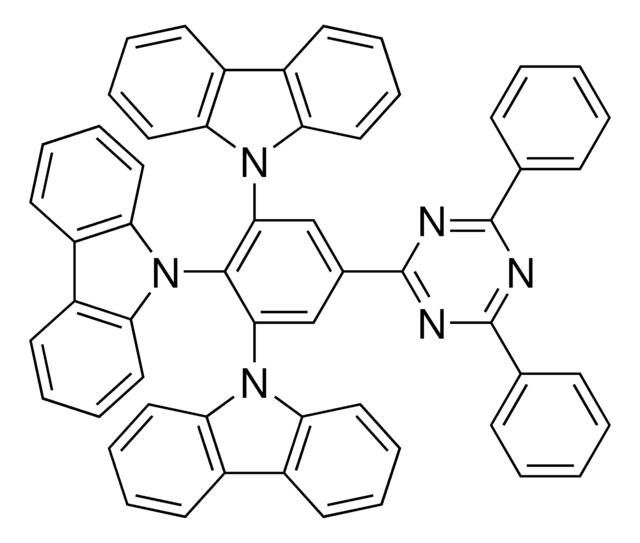932078
10-Phenyl-10H,10′H-spiro[acridine-9,9′-anthracen]-10′-one
≥99% (HPLC)
Synonym(s):
ACRSA
Sign Into View Organizational & Contract Pricing
All Photos(2)
About This Item
Empirical Formula (Hill Notation):
C32H21NO
CAS Number:
Molecular Weight:
435.52
UNSPSC Code:
12352302
NACRES:
NA.23
Recommended Products
Quality Level
grade
sublimed grade
Assay
≥99% (HPLC)
energy gap
0.04 eV (delta EST)
loss
0.5% TGA, > 250 °C (weight loss)
solubility
chloroform: soluble
toluene: soluble
λmax
301 nm±5 nm in toluene
Application
10-Phenyl-10H,10′H-spiro[acridine-9,9′-anthracen]-10′-one, also known as ACRSA, is a solution-processable efficient TADF emitter, used as blue - greenish dopant.
Storage Class Code
11 - Combustible Solids
WGK
WGK 3
Flash Point(F)
Not applicable
Flash Point(C)
Not applicable
Certificates of Analysis (COA)
Search for Certificates of Analysis (COA) by entering the products Lot/Batch Number. Lot and Batch Numbers can be found on a product’s label following the words ‘Lot’ or ‘Batch’.
Already Own This Product?
Find documentation for the products that you have recently purchased in the Document Library.
Climbing up the Ladder: Intermediate Triplet States Promote the Reverse Intersystem Crossing in the Efficient TADF Emitter ACRSA.
Lyskov I, et al.
The Journal of Physical Chemistry C, 121, 21145?21153-21145?21153 (2017)
Keiro Nasu et al.
Chemical communications (Cambridge, England), 49(88), 10385-10387 (2013-09-28)
Efficient thermally activated delayed fluorescence was observed from a spiro-anthracenone derivative (ACRSA). An organic light-emitting diode containing ACRSA exhibited blue-greenish electroluminescence with a maximum external quantum efficiency of 16.5%.
Larissa Gomes Franca et al.
The journal of physical chemistry letters, 12(5), 1490-1500 (2021-02-04)
The molecular photophysics and thermally activated delayed fluorescence (TADF) in spiro compounds are distinct because of the rigid orthogonal C-C bridging bond between donor and acceptor. The photophysics is found to be highly complex, with unprecedented multiple anti-Kasha emissions from
Our team of scientists has experience in all areas of research including Life Science, Material Science, Chemical Synthesis, Chromatography, Analytical and many others.
Contact Technical Service


![Poly[(9,9-dioctyl-2,7-divinylenefluorenylene)-alt-{2-methoxy-5-(2-ethylhexyloxy)-1,4-phenylene}]](/deepweb/assets/sigmaaldrich/product/structures/303/311/48d96c0b-9463-4dd8-9ccf-3a67b7c781c5/640/48d96c0b-9463-4dd8-9ccf-3a67b7c781c5.png)





